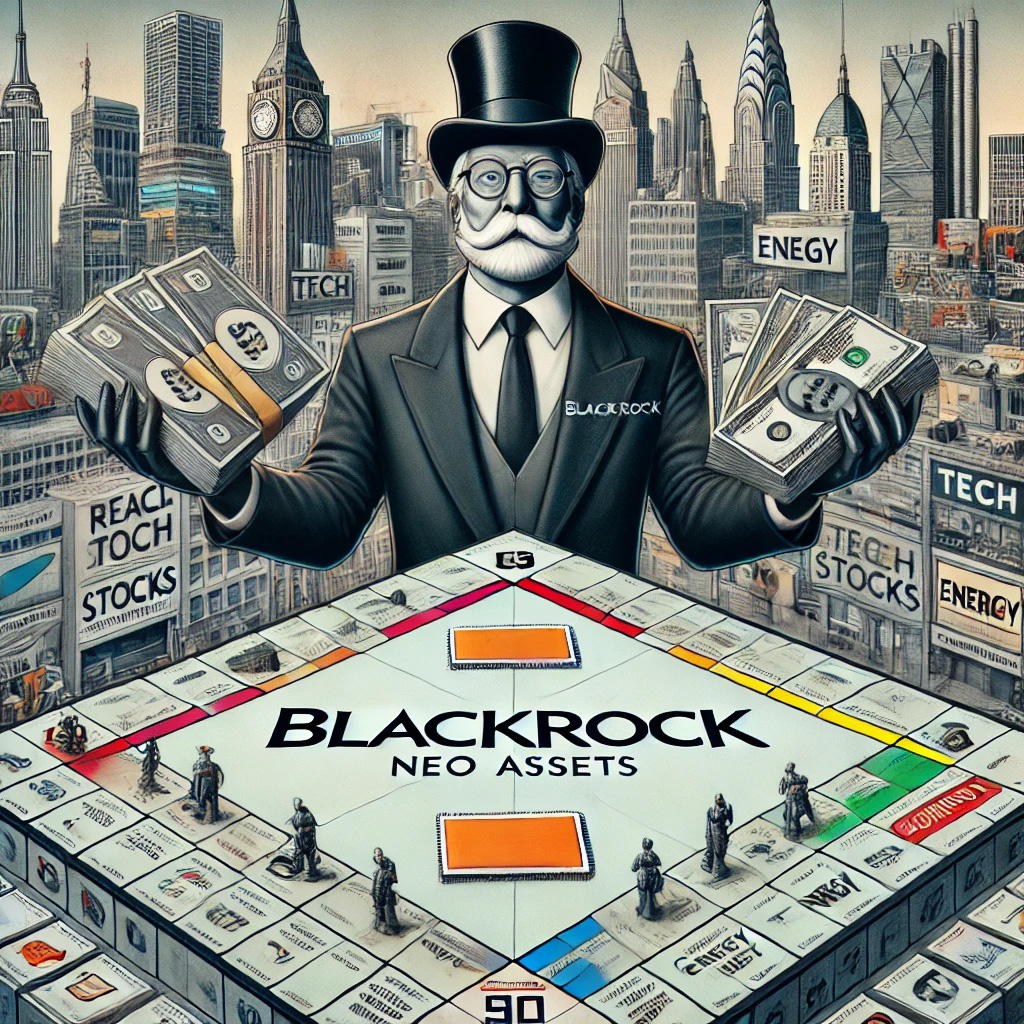BlackRock. A name not of a far-off mountain or an industrial power plant, but of a financial titan with a grip spanning the globe. Its reach is beyond Wall Street, stretching into the lives of millions in ways both seen and unseen, both public and deeply private. Founded in 1988, BlackRock has risen from a quiet asset manager to a giant, holding sway over corporations, governments, and every corner of the market. Today, it’s more than just a financial firm—it’s a neo-monopoly.
At over $9 trillion in assets under management, BlackRock’s scale is hard to fathom. It isn’t a bank, yet it shapes banks. It isn’t the government, but it wields influence over government policies. The U.S. Federal Reserve called on BlackRock to help stabilize markets during the COVID-19 crisis. With funds like iShares ETFs in its arsenal, it has democratized investing for the average person, but in doing so, it has amassed immense control over the companies listed on global exchanges. You might own shares, but BlackRock holds the voting rights.
How BlackRock influences the Federal Reserve
BlackRock: The Most Shocking Conspiracy You’ve Never Heard Of pic.twitter.com/l3wDilD5i6
— Not A Number (@myhiddenvalue) November 12, 2024
The influence doesn’t end there. Through advanced technologies like Aladdin—its data-driven portfolio management platform—BlackRock collects market data at an unprecedented scale. It doesn’t just move with the markets; it moves the markets. Aladdin is the brain behind the operation, a digital mind influencing assets, people, and policies worldwide.
Critics argue that BlackRock’s dominance has crossed a line, creating systemic risk, quietly wielding economic power that rivals nations. Shareholders in one company might find BlackRock as the key investor in its competitors. An airline, an oil company, a food chain—BlackRock holds stakes in them all. The lines between healthy competition and dangerous monopoly blur.
Yet the company remains elusive. CEO Larry Fink often paints BlackRock as a responsible steward, advocating for long-term sustainability and stakeholder value. Its goals, they argue, align with global interests. Yet, how long can one entity control so much without facing checks and balances?
BlackRock may not be a monopoly in the strictest legal sense, but in the modern financial ecosystem, it is, undeniably, a force unlike any other. A neo-monopoly.

Leave a Reply